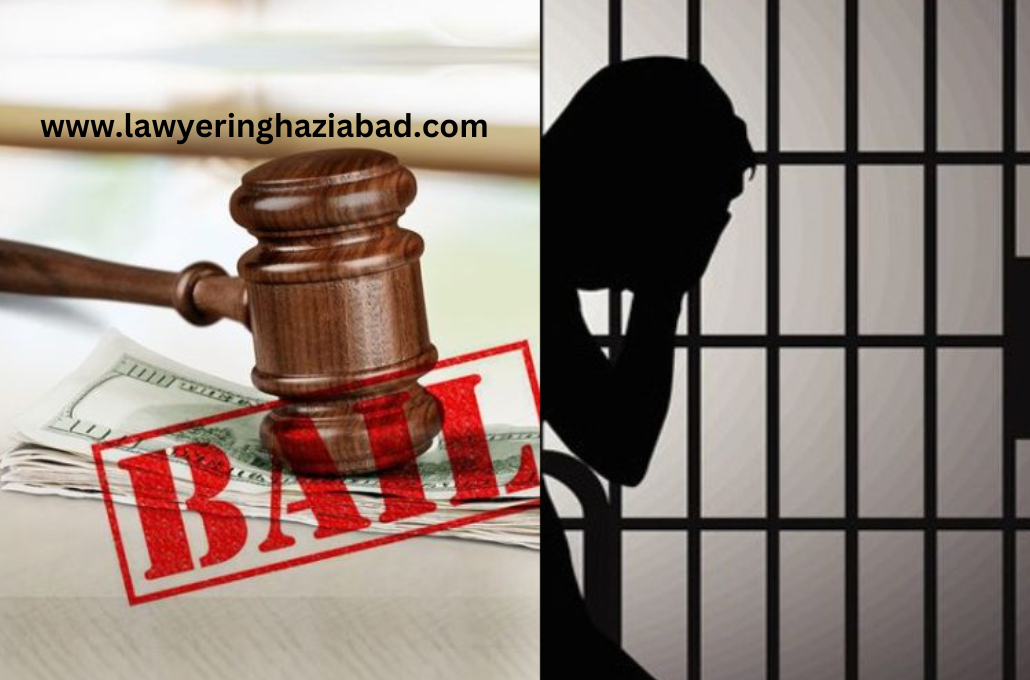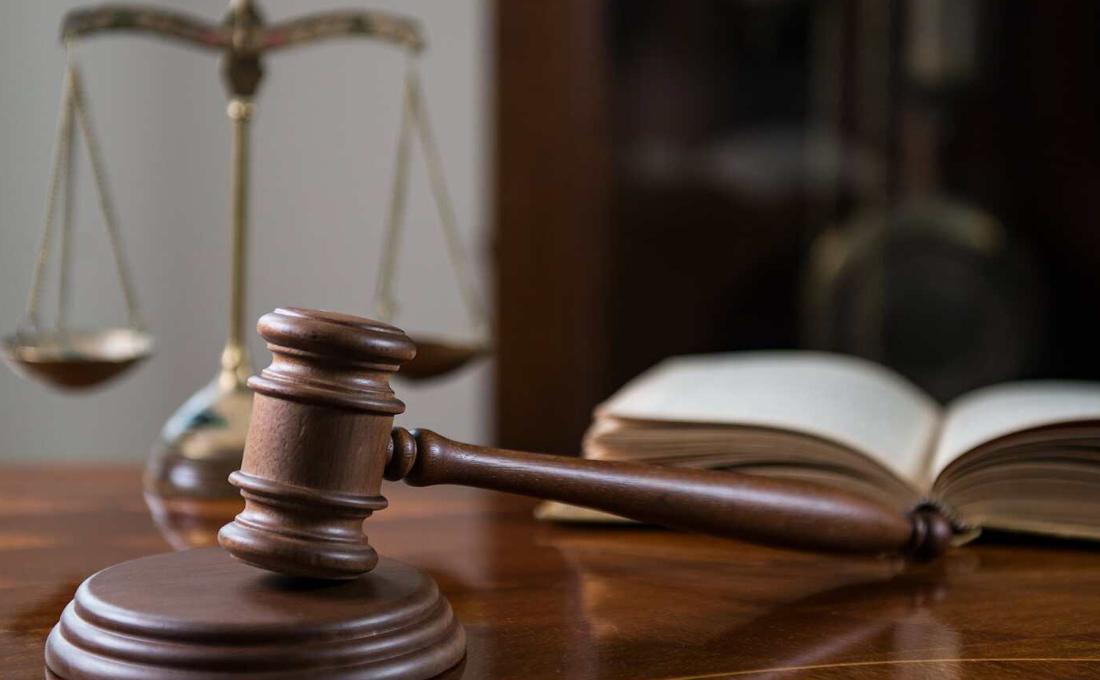
Lawyer in Ghaziabad is a leading law firm with its presence in India and abroad, operating out of offices in: Delhi, Noida and Ghaziabad. It is one of the best law firms in Delhi, Noida and Ghaziabad with an exceptional experience and reputation in the legal arena.
- Legal Consultation
- Transparent Communication
- Results-Oriented
Bail Application Lawyer In Ghaziabad
Expert Bail Application Lawyer in Ghaziabad
Expert Bail Application Lawyer in Ghaziabad
Your Trusted Ally in Bail Application
A bail application is a formal legal request submitted to a court by an accused individual or their legal representative, seeking temporary release from custody during ongoing legal proceedings or trial. It serves as a crucial mechanism in the justice system, ensuring that an individual’s right to liberty is protected while the legal process unfolds. The concept of bail is rooted in the principle of "innocent until proven guilty," which emphasizes that individuals should not be subjected to undue detention without a fair trial. When granting bail, courts consider various factors, including the severity of the offense, the likelihood of the accused fleeing, and potential threats to public safety. To balance liberty with judicial efficiency, bail is often granted under specific conditions, such as periodic reporting to authorities, restrictions on travel, or providing a surety. This provision ensures that the accused can continue their personal and professional lives while preparing their defense. Simultaneously, it helps avoid overcrowding in jails and the unnecessary detention of individuals who pose no immediate threat to society. A bail application, therefore, upholds both individual rights and the broader principles of justice, ensuring a fair and equitable legal process.
Types of Bail
Bail is an essential provision in the justice system, categorized into three primary types: regular bail, anticipatory bail, and interim bail. Each type serves distinct legal purposes, ensuring the rights of individuals are protected while maintaining judicial balance. Regular bail is granted to individuals who are already in custody, allowing them temporary release until the trial concludes or further legal proceedings take place. This type of bail ensures the accused can prepare their defense without being subjected to prolonged detention. It is usually granted after considering factors such as the nature of the offense, the likelihood of the accused fleeing, or the potential threat to public safety. Anticipatory bail, on the other hand, is a preventive measure sought by individuals who apprehend arrest for non-bailable offenses. This type of bail provides legal protection before actual arrest, ensuring that the individual cannot be detained arbitrarily. It is typically sought when someone fears they might be falsely implicated or wrongfully arrested. Interim bail is temporary relief granted for a limited period, often while a regular or anticipatory bail application is under consideration. It provides immediate protection from arrest until the court decides on the primary bail application. Interim bail is critical in urgent situations where the accused requires swift relief from detention. These types of bail are granted based on the discretion of the court and are often subject to conditions such as furnishing a surety, reporting to authorities, or restricting travel. Together, they form a robust legal framework that balances individual liberty with societal interests.
Key Points
- Regular Bail: Granted to individuals already in custody for temporary release during trial.
- Anticipatory Bail: Preventive bail sought before arrest to avoid detention.
- Interim Bail: Temporary relief provided while a primary bail application is under consideration.
- Conditions Imposed: Bail often comes with restrictions like travel bans or periodic reporting.
- Judicial Balance: Protects individual rights while ensuring accountability to the legal system.
The Legal Framework Governing Bail Applications
The legal framework governing bail applications is essential to ensure that the rights of the accused are protected while maintaining the integrity of the judicial process. In India, the provisions for bail are primarily outlined in the Code of Criminal Procedure (CrPC), specifically under Sections 436 to 439. These sections delineate the process and conditions for granting bail in bailable and non-bailable offenses, offering a balanced approach to individual liberty and societal safety. For bailable offenses, the accused has an inherent right to bail. Under Section 436 of the CrPC, the court or police officer handling the case must grant bail upon fulfillment of the required conditions, such as furnishing a bond. This ensures that individuals accused of minor crimes are not unnecessarily detained. In contrast, for non-bailable offenses, the decision to grant bail lies at the discretion of the court, as specified under Section 437 of the CrPC. Courts consider factors such as the seriousness of the offense, the likelihood of the accused fleeing or tampering with evidence, and the overall impact on public safety before granting bail. Section 438 deals with anticipatory bail, which allows an individual to seek protection from arrest before being detained for a non-bailable offense. Section 439 empowers higher courts, such as Sessions Courts and High Courts, to grant bail under special circumstances and impose conditions as deemed necessary. Globally, similar frameworks exist to balance individual rights and judicial accountability. For instance, in the United States, the Eighth Amendment prohibits excessive bail, emphasizing the principle of fairness. The legal framework for bail applications ensures that justice is served while upholding the constitutional principle of “innocent until proven guilty.” It prevents unnecessary incarceration and promotes fairness and transparency in legal proceedings, fostering public trust in the justice system.
The Procedure for Filing a Bail Application
Filing a bail application is a structured legal process aimed at securing the temporary release of an accused individual from custody. The procedure begins with drafting a formal application, typically prepared by the accused’s legal counsel. This document outlines the grounds for seeking bail, such as the accused’s right to liberty, absence of prior convictions, and assurance of cooperation with the judicial process. The bail application must also specify the nature of the offense and include relevant legal provisions. Once drafted, the application is submitted to the appropriate court. For minor or bailable offenses, the Magistrate's Court is usually approached. However, for non-bailable or serious offenses, the application is filed with the Sessions Court or, in certain cases, the High Court. The selection of the court depends on the severity of the charges and the stage of the investigation. During the hearing, the defense presents arguments justifying the grant of bail. These may include assurances that the accused poses no flight risk, will not tamper with evidence, and will cooperate fully with the investigation. The prosecution, on the other hand, may oppose the application by highlighting concerns such as the likelihood of absconding, influencing witnesses, or committing repeat offenses. After hearing arguments from both sides, the court examines the merits of the case, the nature of the offense, and the personal circumstances of the accused. If bail is granted, it is often subject to specific conditions, such as the submission of a bond, surrender of a passport, or regular appearances before the court. This procedure ensures that the judicial process balances the accused’s right to liberty with the interests of justice and public safety.
Factors Considered by Courts in Bail Applications
When deciding on bail applications, courts meticulously evaluate a range of factors to ensure that justice is upheld while balancing the rights of the accused. One primary consideration is the nature and gravity of the offense, as severe crimes like murder or terrorism may warrant stricter scrutiny. The accused's criminal record is another crucial aspect; a history of offenses may reduce the likelihood of bail being granted. Courts also assess the risk of the accused absconding, as ensuring their presence during the trial is vital. The possibility of the accused tampering with evidence or influencing witnesses is a significant concern, as such actions can undermine the judicial process. In certain cases, the court takes into account the accused’s personal circumstances, such as their health, age, or financial situation, particularly if these factors make detention overly burdensome. For non-bailable offenses, the burden of proof shifts to the accused to demonstrate compelling reasons for bail. Courts may also consider the anticipated duration of the trial, particularly in cases where prolonged detention without conclusion may violate the principle of justice. These factors collectively guide the court in making a decision that is fair and just, both to the accused and to society.
Key Points:
- The nature and severity of the offense are carefully assessed.
- The accused's criminal history impacts the likelihood of bail.
- Courts evaluate the risk of flight or absconding.
- Possibility of tampering with evidence or influencing witnesses is a key concern.
- The accused’s personal circumstances, such as age or health, are taken into account.

Conditions Imposed with Bail
When granting bail, courts often impose a set of conditions to ensure that the accused adheres to legal procedures and does not misuse their liberty. These conditions are designed to balance the interests of justice with the accused's right to freedom, preventing actions that could jeopardize the investigation or the trial process. One of the most common conditions is the surrendering of the accused’s passport to prevent them from leaving the country. Courts may also require the accused to report periodically to the local police station as a means of monitoring their activities. Another significant condition involves restricting the accused from contacting or approaching witnesses, as this could lead to tampering with evidence or influencing testimonies. In many cases, the court mandates that the accused cannot leave the jurisdiction or travel without prior permission, ensuring their availability for court hearings. Additionally, courts may require a surety, where a third party provides a financial or personal guarantee that the accused will comply with all bail conditions. The surety acts as an added assurance that the accused will not abscond or violate the terms of bail. Failure to adhere to these conditions can lead to severe consequences, including the revocation of bail and re-arrest. These conditions are crucial to maintaining the integrity of the judicial process while safeguarding the rights of the accused.
Key Conditions Imposed with Bail:
- Surrendering the passport to prevent international travel.
- Mandatory periodic reporting to the police.
- Restriction on contacting witnesses or tampering with evidence.
- Prohibition from leaving the jurisdiction without court permission.
- Requirement of a surety as a financial or personal guarantee.
The Importance of Bail in the Justice System
Bail serves as a critical component in balancing the rights of individuals and the interests of justice within the legal framework. It allows accused individuals to remain free while awaiting trial, ensuring that their right to liberty is not unduly restricted before guilt is proven. This principle aligns with the legal doctrine of “innocent until proven guilty,” a cornerstone of any fair justice system. One of the key benefits of bail is its role in preventing overcrowding in prisons. Detaining individuals who are awaiting trial contributes significantly to prison overcrowding, placing an unnecessary burden on state resources. By granting bail, the justice system can alleviate this issue while ensuring that only those accused of serious crimes or deemed a flight risk are held in custody. Bail also has profound personal and social implications for the accused. It allows them to maintain employment, provide for their families, and prepare an effective defense with their legal team. For individuals from vulnerable communities, this provision safeguards their social and economic stability during a challenging period. Additionally, the conditions imposed with bail ensure accountability and prevent misuse. Measures like regular police reporting or travel restrictions help ensure the accused’s presence during trial while mitigating risks like evidence tampering or fleeing. In essence, bail is not merely a procedural mechanism but a vital tool for safeguarding individual rights, promoting fairness, and maintaining public confidence in the justice system. Its thoughtful implementation ensures justice is not only done but also seen to be done.
Challenges in Securing Bail
Securing bail can sometimes be a challenging process, particularly for individuals accused of serious offenses. High-profile cases or those involving heinous crimes often attract stricter scrutiny, making it harder for the accused to obtain bail. Financial constraints can also hinder access to legal representation or the ability to provide a surety. Additionally, delays in the judicial process can prolong the period before a bail hearing, keeping the accused in custody unnecessarily. Addressing these challenges requires efficient legal procedures and equitable access to justice.
Anticipatory Bail: A Preventive Measure
Anticipatory bail is a vital legal provision that offers protection to individuals who anticipate arrest due to false or malicious allegations. Under Section 438 of the Code of Criminal Procedure (CrPC) in India, this provision enables a person to seek bail even before being arrested. It ensures that individuals can avoid unnecessary detention and safeguard their liberty while cooperating with the ongoing investigation. The primary objective of anticipatory bail is to prevent the misuse of arrest powers and protect individuals from harassment in cases where accusations might lack substance. For example, in disputes that escalate into legal battles, one party may attempt to use the threat of arrest to intimidate the other. Anticipatory bail serves as a shield in such situations, ensuring that justice is not compromised by personal vendettas or abuse of legal mechanisms. Courts scrutinize anticipatory bail applications carefully to ensure a balance between individual rights and the interests of justice. Factors such as the seriousness of the allegations, the applicant’s criminal history, and the potential risk of evidence tampering or witness intimidation are considered. Genuine cases are granted protection, while courts discourage offenders from exploiting this provision for undue advantage. In essence, anticipatory bail is a preventive measure that upholds the principle of “innocent until proven guilty.” It ensures that individuals accused of crimes have the opportunity to defend themselves without being subjected to unwarranted detention, promoting fairness and accountability in the justice system.
Bail for Economic and White-Collar Crimes
Bail in cases of economic offenses or white-collar crimes involves a unique set of considerations compared to other criminal cases. Economic offenses typically include financial fraud, embezzlement, money laundering, or corporate scams, which often have widespread implications on public trust, financial institutions, and market stability. Consequently, courts approach bail applications in such cases with heightened scrutiny to ensure justice and public confidence in the legal system. One of the primary factors considered is the financial magnitude of the offense and the accused's role in it. Courts evaluate whether granting bail would hinder the recovery of misappropriated funds or assets. To address this, the accused may be required to deposit a substantial monetary sum or provide property as surety. Additionally, the likelihood of the accused fleeing or tampering with evidence is given significant weight, as these crimes often involve intricate financial transactions that are difficult to trace. The courts also weigh the public impact of the alleged crime, as economic offenses can harm large groups of people or destabilize economic sectors. The accused's cooperation during the investigation is another important consideration, ensuring that they comply with ongoing legal processes while on bail. While the principles of justice, such as the presumption of innocence, remain intact, the detailed and technical nature of economic crimes necessitates a comprehensive evaluation of bail applications. This ensures that bail is not granted in a manner that compromises the recovery of losses, ongoing investigations, or the broader public interest. In such cases, the bail process strikes a delicate balance between safeguarding the accused’s rights and upholding accountability, fairness, and justice.
The Role of Legal Expertise in Bail Applications
The process of drafting and presenting a bail application demands a thorough understanding of criminal law, judicial procedures, and strategic advocacy. A skilled lawyer plays a pivotal role in crafting a compelling case for bail by analyzing the specific circumstances of the case, anticipating the court’s concerns, and addressing them effectively. They must present sound legal arguments and cite relevant case laws to demonstrate why bail should be granted to their client. Legal expertise becomes especially critical in cases involving serious charges, such as non-bailable offenses, or in high-profile matters where public and judicial scrutiny is heightened. These situations often require careful navigation to strike a balance between safeguarding the client’s rights and ensuring compliance with legal obligations. A proficient lawyer understands how to mitigate potential objections raised by the prosecution, such as risks of flight, evidence tampering, or witness intimidation, by proposing reasonable conditions for bail. Moreover, an experienced lawyer can adapt their arguments to address specific factors, such as the accused’s personal circumstances, the nature of the offense, and the time required for trial completion. They may also highlight constitutional principles, such as the presumption of innocence, to strengthen their case. Choosing a competent criminal defense lawyer can significantly influence the outcome of a bail application, ensuring that the accused’s liberty and legal rights are adequately protected during the judicial process.
Conclusion
Bail applications are a cornerstone of the justice system, offering individuals accused of crimes the opportunity to remain free while awaiting trial. This legal mechanism reflects the principle of "innocent until proven guilty," ensuring that individuals are not subjected to undue punishment before a verdict is reached. Bail allows the accused to prepare their defense effectively, maintain their livelihood, and support their family, thereby minimizing the disruptive impact of pretrial detention. At the same time, the conditions imposed with bail ensure accountability, preventing misuse of this provision and safeguarding public safety. Courts carefully evaluate factors such as the severity of the offense, the likelihood of absconding, and the possibility of tampering with evidence before granting bail, striking a balance between individual liberty and societal interests. By adhering to established legal procedures and maintaining transparency in decision-making, the justice system fosters trust and confidence in its fairness. Equitable access to bail, irrespective of financial or social status, reinforces the foundational principles of justice and equality under the law. In this way, bail serves as a vital tool in upholding the rule of law while ensuring that the rights and freedoms of the accused are protected throughout the judicial process.





